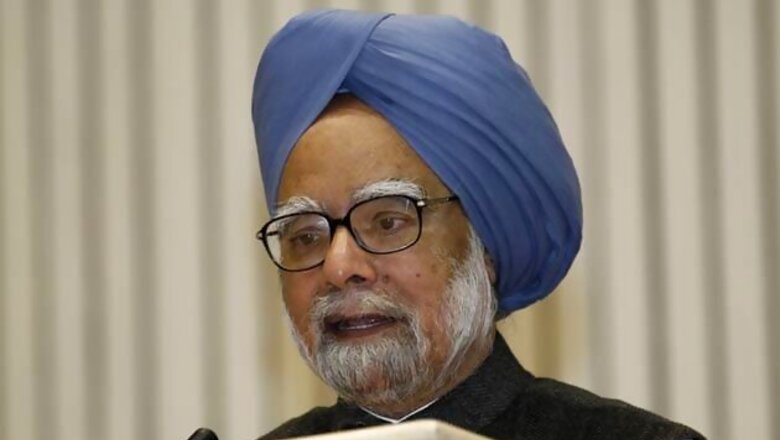
views
New Delhi: Prime Minister Manmohan Singh left on Monday on a two-nation five-day visit to Japan and Thailand aiming to give a "new meaning" to India's 'Look East' policy and hoping it will contribute to peace, prosperity and stability in the Asia-Pacific. PM Manmohan, who flew to Tokyo, his first halt, described Japan as a "key regional and global partner for India".
In his departure statement, he said he proposed to invigorate India's relations with Japan in the political, security and energy spheres. "My visits to Japan and Thailand will add depth and new meaning to our 'Look East' policy and contribute to peace, prosperity and stability in the Asia-Pacific," he said.
On a three-day visit to Tokyo, the PM will make a strong pitch for elevating strategic ties and push for a bilateral pact on civil nuclear energy cooperation. He will hold exhaustive talks with his Japanese counterpart Shinzo Abe on Wednesday on the entire gamut of bilateral ties with special focus on giving boost to cooperation in defence, economic, energy and other areas.
"There is a growing congruence in our interest and I see this relationship as an essential component of our vision for enduring stability and prosperity in Asia," the Prime minister said. PM Manmohan said in his summit with the new government of Japan led by "good friend" Abe, he will build on the momentum imparted by successive summits to the India-Japan Strategic and Global Partnership.
On the civil nuclear cooperation agreement, the PM, told Japanese reporters that there are problems in Japan and there are elections to the upper house in that country which will take place later in 2013. "But, I do hope that we can make progress in the civil nuclear energy cooperation," he said.
"It will be my effort to use this visit to strengthen our strategic and global partnership, which also includes trying to reach an agreement with regard to civil nuclear energy cooperation," he said. Negotiations for the civil nuclear cooperation agreement have not made much headway since Japan was struck by Fukushima nuclear disaster in March, 2011.
While Japan has backed the Indo-US nuclear deal and the exemptions given to India from international technology sanctions, successive governments in Tokyo have found the going tough in garnering political support for it in the face of stiff opposition from the non-proliferation lobby here. Sale of nuclear equipment and technology by Japan to India have been hit by Tokyo's sensitivity over India's past atomic tests and persistent refusal to sign the Nuclear Non-Proliferation Treaty and the Comprehensive Test Ban Treaty on the ground that these were discriminatory.
Though India has put a moratorium on further nuclear testing, Japan is insisting on a clearer commitment from it. One of the aspects being debated is the consequences should India decide to carry out another test.
"There are a number of stages we will have to go through before we reach a signature," according to Foreign Secretary Ranjan Mathai, who said discussions on the civil nuclear cooperation agreement have been given "some impetus" recently. Safety is one of the key issues from the Indian side in the negotiations for such a pact.
In his statement, the Prime Minister also said that, "We will explore ways to harness the full potential of our Comprehensive Economic Cooperation Partnership (CECP) by intensifying and balancing our two way trade and investment linkages". The visit will also allow the two governments to take stock of the progress in flagship projects like the Western Dedicated Freight Corridor and the Delhi-Mumbai Industrial Corridor, and to facilitate bilateral engagement for meaningful and mutually beneficial association.
PM Manmohan said he hopes to exchange views with Prime Minister Abe on important regional and global developments of shared interest. The Prime Minister noted that his visit to Japan for the annual bilateral summit got deferred last year due to impending last elections last year.
He also said he looks forward to meeting Emperor Akihito and Empress Michiko. He said both sides will use the visit to review overall Indo-Japan relations.
During the visit, the PM will also be interacting with leaders across the political spectrum in Japan, captains of Japanese industry and friends of India from all walks of life.




















Comments
0 comment